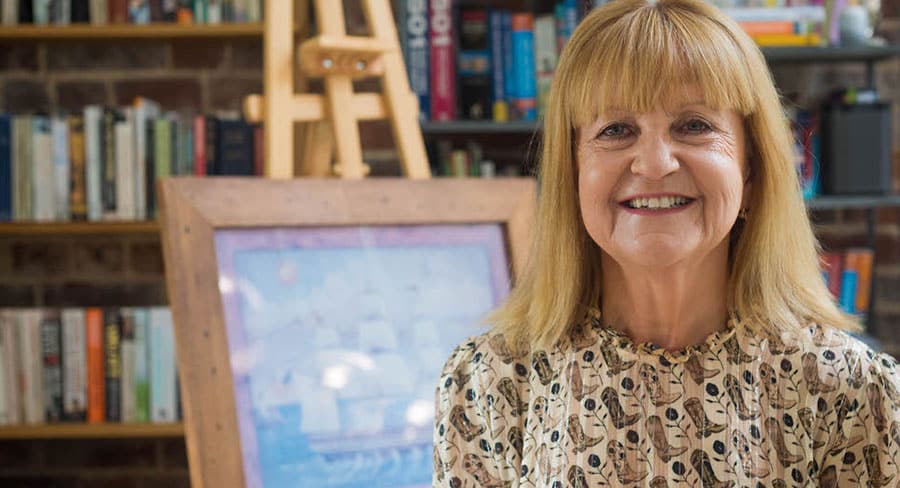Since Mediaweek last checked in with the chief executive of the world’s biggest independent distributor of TV content, Banijay Rights’ Cathy Payne, the TV business has changed in a number of ways.
“There has been a lot of consolidation in terms of distributors and the clients we sell to,” Payne told Mediaweek from her London office. “Be it a linear or non-linear client. I am talking about buying groups like Paramount and Warner Media/Discovery, but also companies like Nine and Stan where all the drama now sits together and that model has been repeated in different markets.
“The launch of direct-to-consumer platforms has changed the studio model. That opens up new opportunities for independent distributors like us. We are platform and broadcaster agnostic and do business with everybody.
“Our unique selling point is we are very local, working in all the major markets. We have production businesses in many markets and our distribution business is very global with people on the ground in all the major markets.
“As a distributor, we are involved right from the very beginning and we always have been. Part of our DNA is being involved from an idea through to production and financing. The company is run by people who are producers.”
Banijay Rights’ catalogue encompasses titles from Banijay’s 120+ in-house labels, plus a number of third-party producers, spanning drama, comedy, entertainment, factual, reality, family, formats and theatrical.
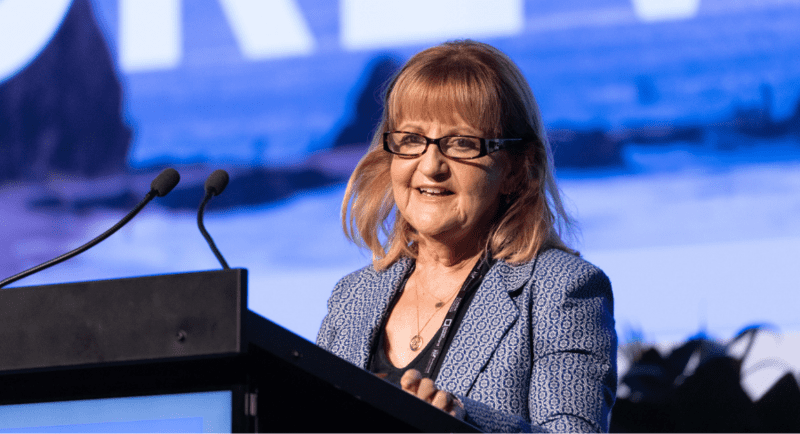
Cathy Payne
Catch-up becomes VOD streaming
When asked if spend on content is growing quicker for streaming platforms than TV broadcasters, Payne explained that catch-up services have been transformed into streaming VOD services.
“If you look at what was originally the catch-up service for the BBC, it is now iPlayer. The same with ABC’s iview, Nine’s 9Now and Seven’s 7plus. These have now become very substantial platforms that are looking for local audiences in their own markets.
“All the VOD platforms talk about content that brings in new viewers. They have big, big shows together with the programming they licence non-exclusively so audiences don’t switch to go and watch it on another service.”
Content demand
Payne noted that while there has been increased activity with more streaming platforms, underlying any expansion is a price point. “You can’t have streaming services running up huge costs content unless they make money.
“Content is being made for audiences to watch, and there is more because those audiences are spread across more platforms.”
‘Every client is important’
While Banijay Rights might be the world’s biggest indie distributor, Payne noted you don’t have to be a big player to be a customer. “Every client is important as long as there is a viable deal. There are some very niche services who like to do revenue share deals. It can cost more to set them up and can be uneconomic if they are reporting very small payments.
“A client needs to have a certain level of scale. When we are working in tiny markets we can offer major packages to make it work for both parties.”
How the selling business changed
With Banijay Rights sales executives based across the globe in Los Angeles, Miami, Sydney, Singapore, Mumbai, Paris, London and now Azerbaijan, Covid has not greatly impacted the way TV content is sold. “Everyone has started travelling again,” said Payne. “Zoom was very useful though which helped keep us going at times. Now everyone is a bit over Zoom though. While it is always great to see people, they are now very mindful of not just their time, but also their carbon footprint.
“More people are asking themselves if they really need to fly to Los Angeles for just one meeting.
“It is great for the Australian buyers to come over and see what the rest of the world is doing, but our Australian team doesn’t need to come to France to do a deal with Nine or Seven.”
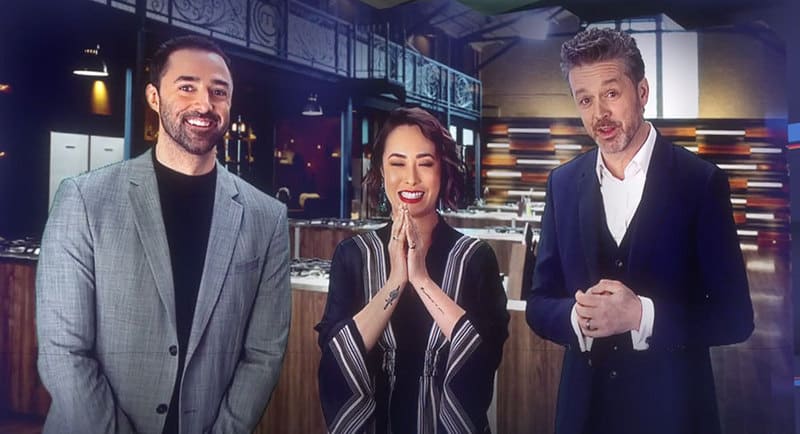
MasterChef Australia judges
Australian TV success stories
Payne has always had a catalogue heavy with Australian success stories. She explained that MasterChef Australia still does big business globally. “The Australian versions of MasterChef Australia and Lego Masters do very well. The Bridge is also doing very well and they have made a great adaptation.
“We also represent My Kitchen Rules for Seven which is good to have back. The consolidated numbers are very good and I’m sure it will be coming back judging from the fact there are casting calls out there.
“The Block also continues to do well.
“Australian scripted however can be very challenging in the market. If the market spent more money on scripted it would really help.
“We have Bali 2002 from Screentime which we have high hopes for.”
When it comes to old formats returning to network schedules, Payne said in order to work, the shows are being creatively rejuvenated. “The BBC has agreed to a very long-term deal with MasterChef for the UK. But we are moving it outside of London to Birmingham and rejuvenating it which is a very big investment.
“If an older format wasn’t delivering audiences it wouldn’t get renewed.”
Banijay Rights: What’s hot for buyers
When asked about any trends among viewers that producers are trying to cater to, Payne offered: “A big trend at the moment is premium documentaries which have certainly come back into primetime. Also, scripted stories based on a true story. Things like Inventing Anna, We Crash, The Sixth Commandment [Banijay factual drama starring Timothy Spall] and there is even a drama in production about the recent Wagatha Christie trial.”
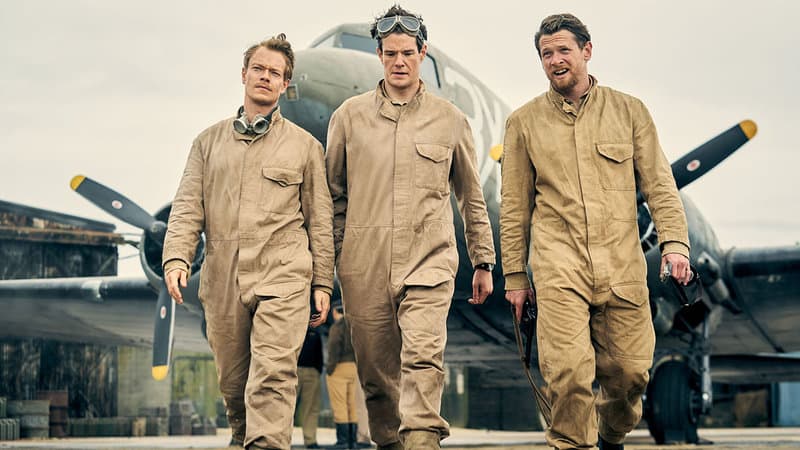
Rogue Heroes
Next from Banijay Rights
“We have some very strong shows coming up for the autumn, Rogue Heroes is one of those about, a drama telling the story about the formation of the SAS. It is one of the biggest scripted shows we have ever done and has sold very well around the world,” said Payne.
“One recent hit is Starstruck which did very well for the distributor and has been renewed for season two.” That series features members of the public who are transformed into some of the biggest music legends.

Starstruck
Another new format attracting interest: “Limitless Win is a unique big game show hosted by Ant and Dec that is soon returning for a second season.” There was not much more Payne could say about it, we’re guessing maybe format sales might be forthcoming. The idea of winning an unlimited amount of dollars is intriguing for both contestants and viewers.
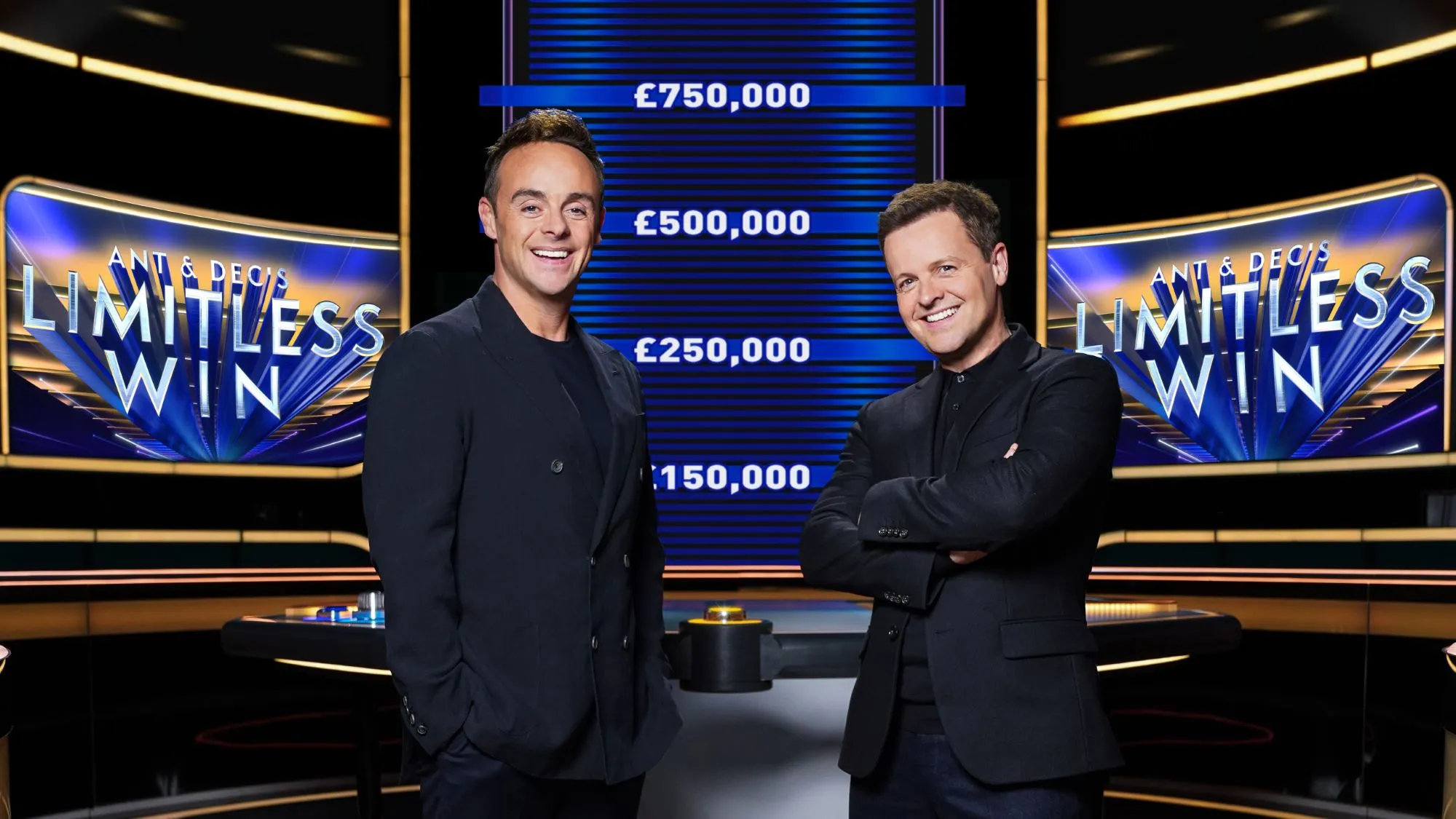
Ant and Dec on Limitless Win set
Aussie TV programming
While Australian FTA commercial channels all have a model of running reality in early primetime and then splitting off into different schedules that might include comedy, documentary or drama, Payne said there are different models for every market.
“In the UK there is different programming on different nights. In the UK Saturday remains a big entertainment night, whereas in Australia if it’s not sport [audiences] can be pretty soft.
“Also, some of the big reality shows in the UK can be on a secondary channel. Every market is different. Australia has a lot of reality and unscripted, and less scripted.”
See also:
Banijay enlists Cathy Payne to lead distribution as CEO Banijay Rights
Screen Forever: Banijay Rights CEO Cathy Payne shares her 8 tips for success
